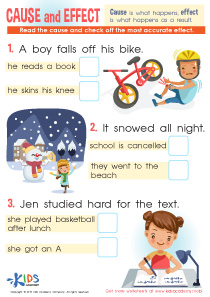Comprehension skills Normal Reading Non-Fiction Worksheets for Ages 5-9
5 filtered results
-
From - To
Enhance your child's comprehension abilities with our engaging Non-Fiction Worksheets, tailored for ages 5-9. Designed to foster critical thinking and reading skills, these worksheets offer age-appropriate content that captivates young learners. Explore exciting topics ranging from science and nature to history and technology, ensuring a rich learning experience. Each worksheet encourages children to analyze text, make connections, and answer questions that boost comprehension and retention. Perfect for classroom use or at-home practice, these resources aim to build confidence in reading non-fiction. Empower your child with vital skills for academic success and ignite a lifelong love for learning today!
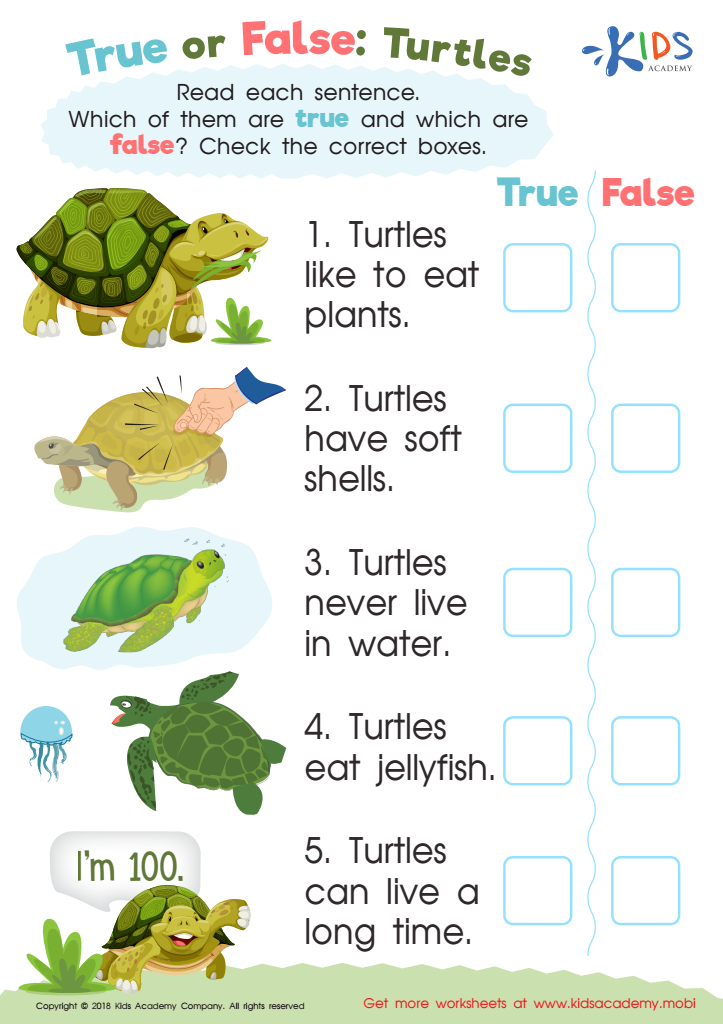

True or False: Turtles Worksheet


Benjamin Franklin Worksheet
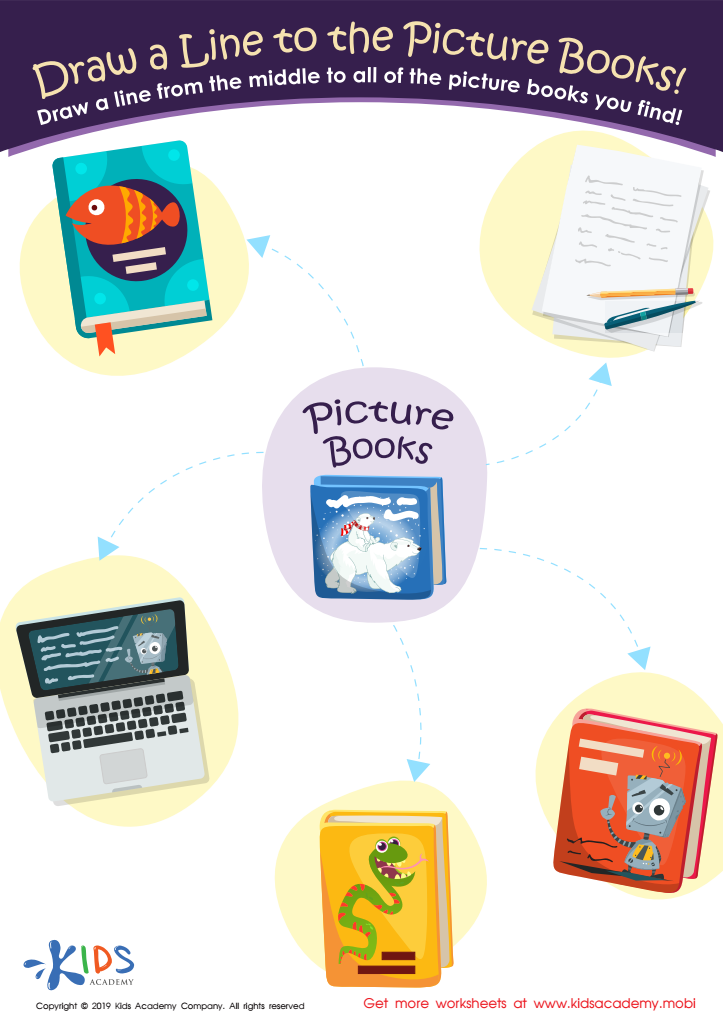

Draw a Line to the Picture Books Worksheet
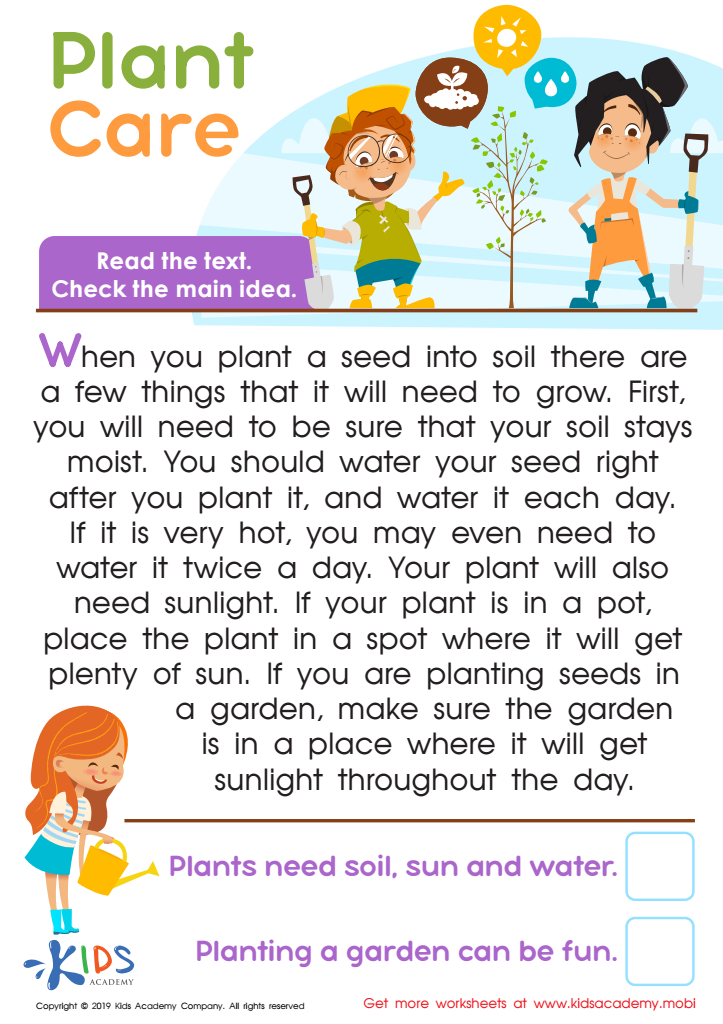

Plant Care Worksheet
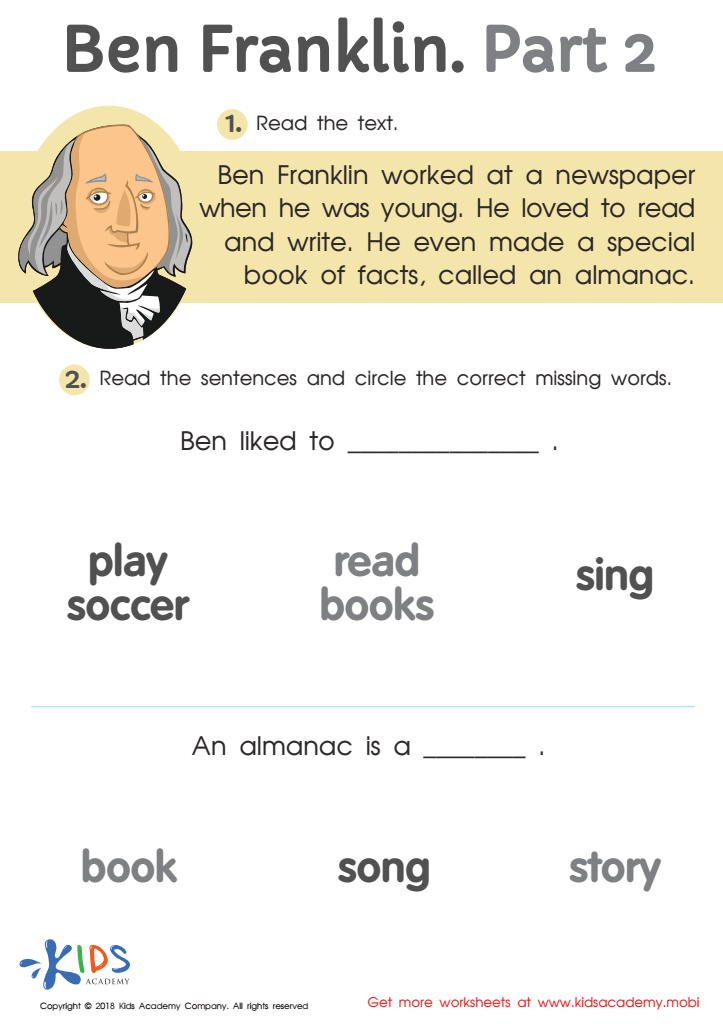

Ben Franklin Part 2 Worksheet
Parents and teachers should prioritize comprehension skills in non-fiction reading for children ages 5-9, as these abilities lay the foundation for lifelong learning. At this stage, children are not just learning to read, but also reading to learn. Comprehension skills help them understand the concepts and information presented in texts, fostering curiosity and critical thinking. Non-fiction materials expose children to a wide range of topics, enhancing their knowledge and vocabulary, which are crucial for academic success.
Developing comprehension skills enhances children's ability to engage with factual content, formulate questions, and draw connections between what they read and the world around them. This not only promotes better understanding in subjects like science and history but also empowers children to become informed citizens as they grow. Additionally, strong comprehension skills can boost confidence, as children develop a sense of accomplishment in grasping complex ideas.
Encouraging comprehension through interactive discussions, guiding questions, and summarization activities enriches the reading experience and helps parents and teachers identify areas where additional support may be needed. Ultimately, fostering comprehension skills equips children with essential tools for their educational journey and instills a love for reading that can last a lifetime.
 Assign to My Students
Assign to My Students










